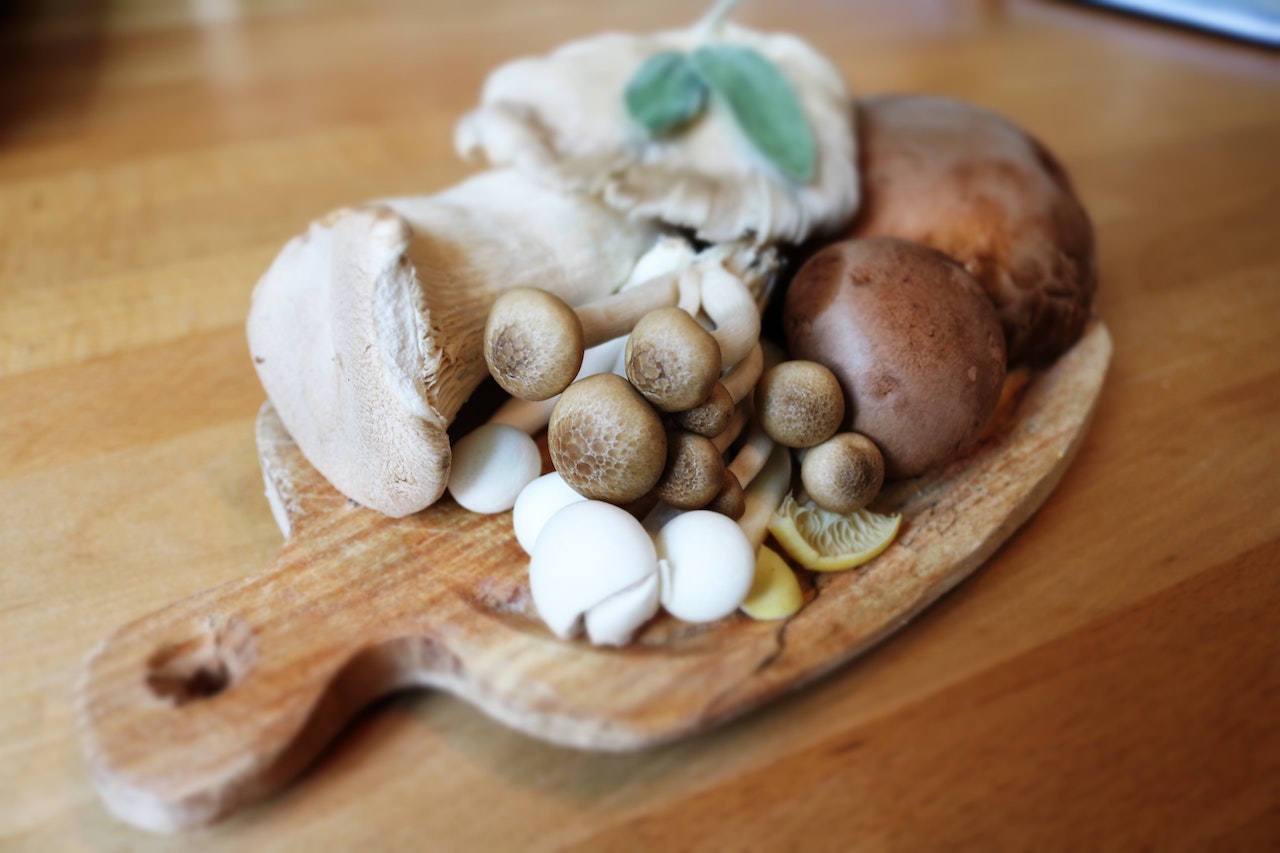Mushrooms to the Rescue
Mushrooms aren’t a food (or a supplement) that many people think to turn to when they want to change their health.
And yet, they are an incredible augmentor of health.
If they were a person, I’d say they’re more than a fungi, they’re a great guy (that was bad, I know, but I couldn’t resist.
Now that I made my mushroom joke, I did want to talk about how we can use them for benefitting our brain (as well as other aspects of health).
You can consume them as part of your diet, but it may be the case that you find taking a supplement is the easiest path forward.
Let’s talk about mushrooms.
Mushrooms for Memory and More
In a recent email, my team posted a link to “magic mushrooms” and how they can benefit health. I believe psychedelics may play a significant role in brain health but I won’t be writing about them here.
I wanted to address that in case anyone has questions about them and why I am not discussing details here.
When it comes to mushrooms that can affect your brain, there are several that you can find at your local grocery store.
And there are studies to show they work.
For this study – people who ate 2 servings a week of cooked oyster, shiitake, golden, and/or white button mushrooms (and even dried and canned mushrooms of the same variety) saw benefits in cognitive performance.
This six-year study out of Singapore has researchers following 600 seniors and showed when 2 portions ( a portion is ¾ of a cup) of mushrooms were consumed weekly it made a major impact on reducing something called mild cognitive impairment (MCI).
The reduction was as much as 52 percent. And just 1 to 2 servings a week was able to do a great deal and reduce MCI by as much as 43 percent.
To help form a baseline to understand the effect on MCI the researchers did a workup before the test to see how they performed on cognitive function tests and also determined their medical history and dietary habits to adjust for the intake of mushrooms.
In their conclusion of this study, the scientists theorized that a compound called ergothioneine (ET) which is typically found in almost all commonly found (and edible) mushrooms was likely the reason that mushrooms offered some kind of reduction against MCI.
Theta admitted other compounds in mushrooms may also have been a factor, and I tend to agree with them based on some other research into mushrooms.
For instance, the use of cordyceps mushrooms for brain health is another indication that mushrooms can support better cognitive function,
Cordyceps are a weird mushroom as they are a parasitic fungi that grows on the larvae of insects.
These fungi attack their host, and then they eat them from the inside out and use the host’s tissue to form longer slender mushrooms that shoot out from inside the body.
Interestingly this didn’t turn off early practitioners from using them in Traditional Chinese Medicine (TCM) to help combat fatigue, sickness, kidney disease, and low sex drive.
Now we know they can help your brain.
Dr. Jockers writes this about cordyceps:
“A 2014 study published in Evidence Based Complimentary and Alternative Medicine showed that Cordyceps supplementation reduced inflammatory markers in the hippocampus of the brain. It also raised up brain-derived neurotrophic growth factor and 5-HTP (precursor to serotonin and norepinephrine levels). These results demonstrated that cordyceps has positive benefits on mood and memory levels).
Another 2012 study showed that cordyceps lowered inflammatory markers in the brain of D-galactose injected mice and increased key anti-oxidants such as superoxide dismutase and glutathione. The non-treated mice showed signs of early mental decline while the cordyceps treated mice showed great ability to think and function at a high level. The researchers suggested based on study results that cordyceps improves memory and ameliorates the decline of mental function.”
Lion’s Mane Mushroom is another mushroom that can help with brain health.
This is not a readily available mushroom for consumption, but you can easily find it in capsules.
The reason why you’d never take it in the first place is that it acts on the brain, specifically as it relates to something called neurite outgrowth.
Studies show lion’s mane enhances “neurite outgrowth” in many of the body’s essential organs, including the brain.
Neurite outgrowth is the generation of regeneration of parts of the nervous system, specifically the growth of axons and dendrites from neurons.
Researchers believe that the more neurite outgrowth you experience the better it is at helping to slow or stop degeneration in the brain. In essence, it could help to stave off things like Alzheimer’s and Parkinson’s.
Malaysian researchers studying lion’s mane in 2012 discovered lion’s mane mushroom could regenerate damaged cells from peripheral nerve injury, an injury affecting the delicate tissue between your brain and spinal cord.”
And as Dr. John Axe writes, there’s even reason to believe lion’s mane could have a major impact on something known as PC12 cells.
”When studying how brain diseases might be affected by particular medications or treatments, scientists often use what is known as the PC12 cell line for testing. Extracts and various forms of lion’s mane mushroom seem to have a major impact on PC12 cells, protecting them from damage and delaying their cell death significantly.”
This is why taking a lion’s mane extract or supplement could be a huge boon to your brain health.
Mushrooms certainly are a beneficial food/supplement and as you read it doesn’t take much to make them work hard for you!


